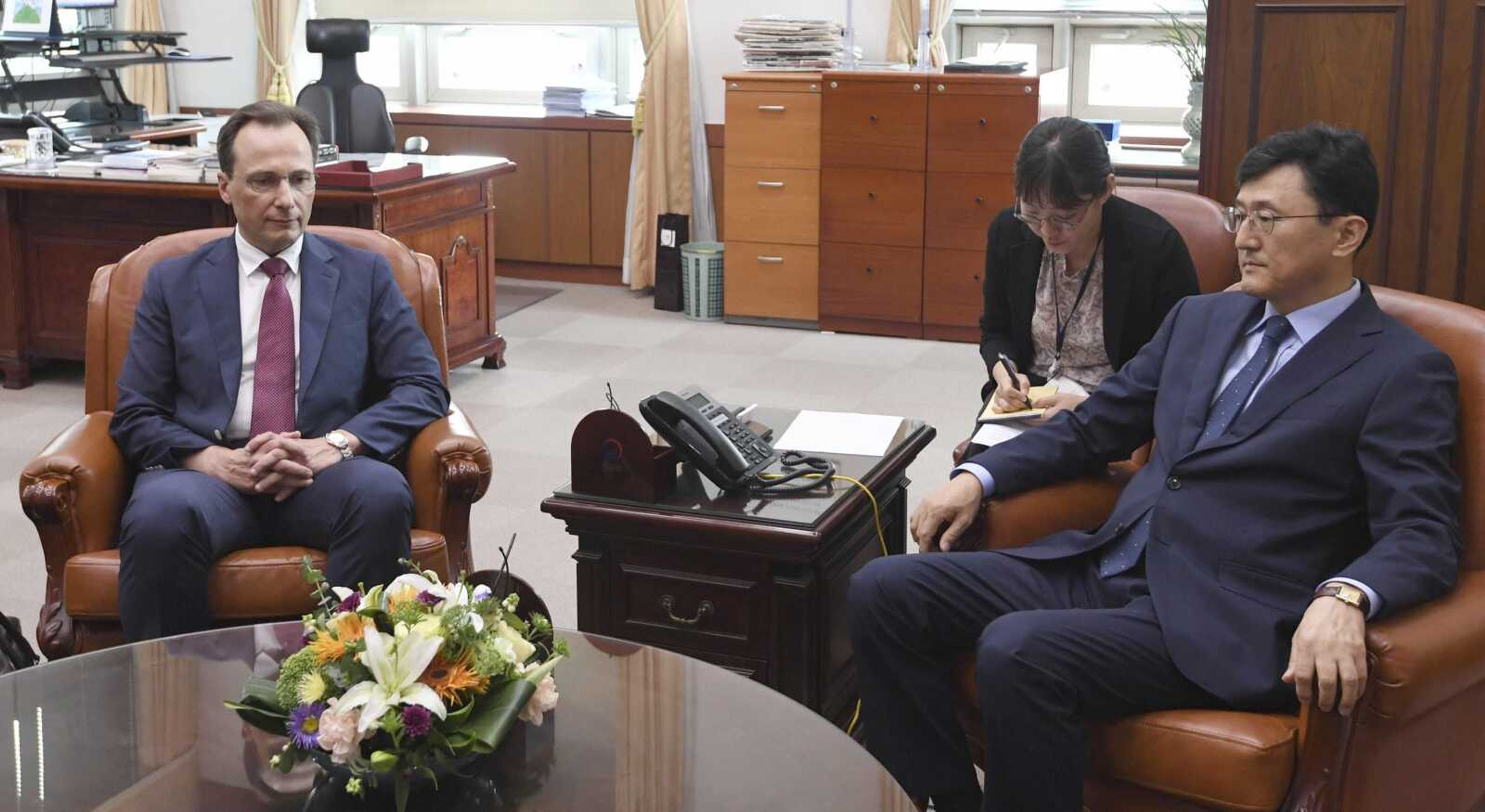SEOUL, South Korea -- South Korean air force jets fired 360 rounds of warning shots Tuesday after a Russian military plane twice violated South Korea's airspace off the country's eastern coast, Seoul officials said in an announcement quickly disputed by Russia.
South Korea said three Russian military planes -- two Tu-95 bombers and one A-50 airborne early warning and control aircraft -- entered the South's air defense identification zone off its east coast before the A-50 intruded in South Korean airspace. Russia said later two of its Tu-95MS bombers were on a routine flight over neutral waters and didn't enter South Korean territory.
South Korea said it was the first time a foreign military plane had violated its airspace since the end of the 1950-1953 Korean War.
According to South Korean accounts, an unspecified number of South Korean fighter jets, including F-16s, scrambled to the area and fired 10 flares and 80 rounds from machine guns as warning shots.
Seoul defense officials said the Russian reconnaissance aircraft left the area three minutes later but later returned and violated South Korean airspace again for four minutes. The officials said the South Korean fighter jets then fired another 10 flares and 280 rounds from machine guns as warning shots.
But the commander of Russia's long-range aviation forces denied the planes had violated South Korean airspace and shots were fired.
"If the Russian pilots had identified such a threat to themselves, they would have immediately given an appropriate response," Lt. Gen. Sergei Kobylash said, according to Russian news agencies.
He said South Korean military planes escorted the Russian planes over neutral waters, which he called "aerial hooliganism."
South Korea's presidential national security adviser, Chung Eui-yong, told top Russian security official Nikolai Patrushev that South Korea views Russia's airspace violation "very seriously" and will take "much stronger" measures if a similar incident occurs, according to South Korea's presidential office.
Pavel Felgenhauer, an independent Russian military analyst, told The Associated Press he believed the incursion could have been a navigation mistake. He also suggested the incident would not have serious consequences because "South Korea right now is not very interested in pressing this into a kind of long-term worsening of relations."
The former Soviet Union supported North Korea and provided the country with weapons during the Korean War, which killed millions. In 1983, a Soviet air force fighter jet fired an air-to-air missile at a South Korean passenger plane straying into Soviet territory, killing all 269 people on board. Relations between Seoul and Moscow gradually improved, and they established diplomatic ties in 1990, a year before the breakup of the Soviet Union.
The airspace South Korea said the Russian warplane violated is above a group of South Korean-held islets roughly halfway between South Korea and Japan that have been a source of territorial disputes between the two Asian countries. Russia isn't part of those disputes.
Japan, which claims ownership over the islets, protested to South Korea for firing warning shots over Japanese airspace. South Korea later countered it cannot accept the Japanese statement, repeating the islets are South Korean territory. Japan also protested to Russia for allegedly violating Japanese airspace.
Connect with the Southeast Missourian Newsroom:
For corrections to this story or other insights for the editor, click here. To submit a letter to the editor, click here. To learn about the Southeast Missourian’s AI Policy, click here.







